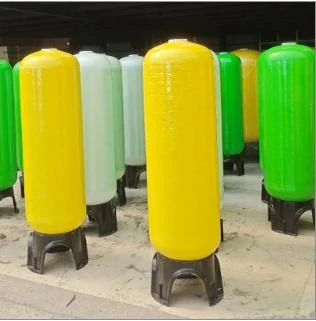loading...
- No. 9, Xingyuan South Street, Dongwaihuan Road, Zaoqiang County, Hengshui, Hebei, China
- admin@zjcomposites.com
- +86 15097380338
- Welcome to visit our website!
Advancements in Fiber Reinforced Polymer Bars for Enhanced Concrete Structures
The Importance of FRP Reinforcement Bars in Modern Construction
Fiber Reinforced Polymer (FRP) reinforcement bars, commonly known as FRP rebar, have emerged as a game-changing material in the construction industry. As traditional construction materials like steel reinforce concrete structures, FRP rebars offer a slew of advantages that cater to the evolving needs of modern engineering projects. This article explores the benefits, applications, and future prospects of FRP reinforcement bars in construction.
What Are FRP Reinforcement Bars?
FRP rebars are composite materials made from a polymer matrix reinforced with fibers, typically glass, carbon, or aramid. The combination of these materials results in a lightweight yet incredibly strong alternative to steel reinforcement bars. Being non-corrosive, FRP bars show superior performance in harsh environments, making them an ideal choice for various construction scenarios.
Key Advantages of FRP Rebars
1. Corrosion Resistance One of the most significant advantages of FRP bars is their resistance to corrosion. Unlike steel, which can rust and degrade when exposed to moisture and saline environments, FRP remains intact under such conditions. This property is especially crucial for structures located in coastal areas or those exposed to chemicals.
2. Lightweight FRP reinforcement bars are considerably lighter than traditional steel bars. This characteristic leads to easier handling and installation, reducing labor costs and construction time. The lightweight nature also means less burden on lifting equipment, which can further streamline onsite operations.
3. High Strength-to-Weight Ratio Despite their lightweight nature, FRP rebars boast a high strength-to-weight ratio. This means that they can provide the necessary strength and support while minimizing the overall mass of the structure. Consequently, engineers can design more innovative and efficient constructions.
4. Thermal Conductivity FRP bars exhibit low thermal conductivity, making them an excellent choice for structures requiring thermal insulation. This property reduces energy costs by minimizing heat loss, ultimately contributing to more sustainable building practices.
frp reinforcement bars

5. Electrical Non-conductivity Being non-conductive, FRP reinforcement bars are beneficial in areas where electromagnetic interference is a concern, such as in the construction of bridges and tunnels.
Applications of FRP Reinforcement Bars
FRP rebars are versatile and can be employed in various applications. They are particularly valuable in the construction of bridges, marine structures, industrial facilities, and even residential buildings. Their resistance to chemical exposure makes them an ideal choice for wastewater treatment plants, where traditional steel reinforcement may succumb to corrosion.
Furthermore, as the construction industry increasingly turns towards sustainable building practices, FRP bars offer an attractive solution due to their longevity and minimal maintenance needs. These features contribute to overall cost savings over a structure's life cycle, making them an economical choice despite their higher initial cost.
Future Prospects
The future of FRP reinforcement bars appears promising as the demand for more durable and sustainable construction materials continues to rise. Research is ongoing to improve the performance characteristics of FRP materials, including enhancing their tensile strength and reducing production costs. As awareness grows about the benefits of using FRP in construction, it is likely that more engineers and architects will consider this innovative material for their projects.
Conclusion
In conclusion, FRP reinforcement bars are revolutionizing construction techniques with their unique properties and advantages. As the industry moves toward more innovative and sustainable practices, the adoption of FRP rebar is expected to increase, paving the way for more resilient and efficient structures in the years to come. The benefits of corrosion resistance, lightweight, and strength make FRP rebars an invaluable resource in modern engineering and construction.
-
GRP Structures: The Future of Lightweight, High-Performance EngineeringNewsJun.20,2025
-
FRP Water Tank: High-Performance Storage for Corrosive and Clean Water SystemsNewsJun.20,2025
-
FRP Square Tube: The New Industry Standard for Chemical and Structural ApplicationsNewsJun.20,2025
-
FRP Pultruded Profiles: The Ultimate Choice for Lightweight Structural StrengthNewsJun.20,2025
-
FRP Handrails: The Safer, Smarter, and Stronger Choice for Modern InfrastructureNewsJun.20,2025
-
FRP Grating: The Smart Solution for Durable, Lightweight Industrial FlooringNewsJun.20,2025
-
Why Choose a Galvanized Water Tank for Your Storage NeedsNewsMay.21,2025
